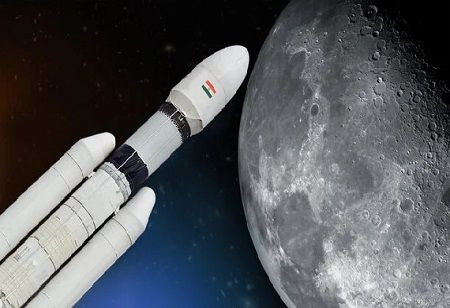
AICTE Introduces Space Technology Curriculum to Meet Growing Workforce Needs

 The All India Council for Technical Education (AICTE) has unveiled a new curriculum for a minor degree in space technology, aimed at addressing the increasing demand for skilled professionals in India’s burgeoning space sector. Following the success of ISRO's Chandrayaan-3 mission and the growing emphasis on space commerce, this initiative, developed in partnership with the Indian National Space Promotion and Authorization Center (IN-SPACe), is designed to prepare undergraduate students for various careers in the space industry.
The All India Council for Technical Education (AICTE) has unveiled a new curriculum for a minor degree in space technology, aimed at addressing the increasing demand for skilled professionals in India’s burgeoning space sector. Following the success of ISRO's Chandrayaan-3 mission and the growing emphasis on space commerce, this initiative, developed in partnership with the Indian National Space Promotion and Authorization Center (IN-SPACe), is designed to prepare undergraduate students for various careers in the space industry.
The curriculum comprises six courses that cover a broad spectrum of subjects, including space technology basics, launch vehicle systems, spaceflight mechanics, spacecraft systems, space data products, and the economics, laws, and policies governing space activities. The interdisciplinary approach will allow engineering students to gain a solid understanding of the space sector, ultimately enhancing their employability in areas such as space data analytics, market research, and operations.
India’s space industry is increasingly seen as a global hub for space commerce. In 2020, the sector was valued at $9.6 billion, representing 2% of the global space economy, and is expected to grow to $13 billion by 2025, according to the Confederation of Indian Industry (CII). As India advances its space capabilities, the need for a technically skilled workforce has become more urgent. AICTE's curriculum is intended to address this gap by equipping students with the necessary skills to thrive in a fast-evolving global landscape.
Abhay Jere, Vice Chairman of AICTE, highlighted the significance of this program, noting that the country’s increasing focus on space technology requires a workforce with specialized technical skills. “This curriculum will allow students from various engineering disciplines to gain a broader understanding of space technology. For example, a BTech student with expertise in space data analytics would be well-prepared for roles in space market research”. said, Jere. The multidisciplinary nature of the curriculum is expected to give students a competitive advantage in both public and private sectors.
Currently, only a handful of Indian institutions offer specialized courses in space technology. For instance, IIT Madras and IIT Bombay have introductory programs, while IIT Roorkee offers a master’s degree in the field. IIT Indore has a bachelor’s program in space technology, and the Indian Institute of Space Science and Technology (IIST) offers both bachelor’s and master’s degrees. AICTE’s new curriculum is a significant step toward expanding educational opportunities in this field. Talks are ongoing with AICTE-approved institutions about adopting the curriculum, and depending on interest and faculty availability, a major degree in space technology could be introduced in the future.
The private sector also offers substantial opportunities for students trained in space technology. The Indian Space Policy 2023 has opened the sector to private companies, leading to an explosion of startups and job prospects. According to the Indian Space Association (ISPA), the number of space startups in India increased to 204 in 2023, up from just one in 2014. IN-SPACe has established the National Committee for Adoption of Space Technology Education, which is tasked with developing curricula and skills courses to help students prepare for careers in the private sector.
Amit Thakur, a member of the National Committee for Adoption of Space Technology Education and head of the Aerospace Engineering Department at Lovely Professional University (LPU), noted that AICTE’s curriculum would provide students with practical experience in addition to theoretical knowledge. "The curriculum assigns 22 credits to space technology, compared to the 2-4 credits typically offered by other institutions. This makes it one of the most comprehensive space technology programs, with a strong focus on weekly hands-on sessions,” Thakur explained. LPU plans to align its own space curriculum with AICTE’s model, providing students with an enhanced learning experience.
AICTE’s launch of a space technology curriculum represents a crucial step in India's ambitions to become a global leader in the space industry. By equipping students with vital skills and knowledge, this initiative seeks to address workforce challenges in the space sector while creating new career opportunities for aspiring space professionals across the country.